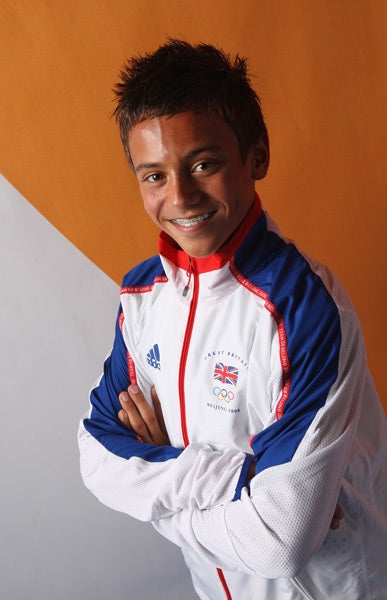Last Night's TV: Olympic Dreams, BBC 1 <br/>True Stories, More4
There's no need to go overboard

Having hope yourself is one thing. Being "a hope" for someone else is quite another, and Olympic Dreams effectively caught the queasy ambiguity of that condition, in its profile of three young hopes for the 2012 Olympics. "I feel that I probably could have been a champion at one time," said Tony Romaeo, a man whose time had now gone, and who as a result was pouring his undiminished ambition into his children.
They were going to achieve greatness, Tony told us. "No matter what it takes me to achieve that." And no matter what it costs them, he might have added, though to say that would have acknowledged the uncomfortable fact that they didn't appear to have a lot of choice in the matter. This wasn't something that Tony was prepared to entertain. "I'm not a pushy parent. I would never push Romeo and I wouldn't push my daughters into doing their chosen sports," he insisted. The remark was tricky to square with Romeo's gym schedule, broken only by school and eating. "Quarter-to-five in the morning I wake Romeo up, rain, snow or sunshine, we don't care. I decide what Romeo does every morning." Romeo wasn't the only runner in Tony's stable. He also had Venus, who will be 15 in 2012 and thus just the right age for a gymnastics gold. And if Venus didn't make the grade, Tony explained,"then I've got a back-up plan, because I've got more babbies". Very sensibly, Tony's youngest daughter was keeping her distance. "With Angel, I think she's always afraid of what I might have planned for her exercise-wise," he said.
You would have had to see a lot more of the Romaeos' family life to decide for certain whether this was merely eccentric or pathological, and Xavier Alford's film, though very good, never quite achieved gold- medal standard as an observational documentary. It simply didn't have enough time to dissect Tony's obsessional approach to his children's lives, or to catch the moments when the public show and the private reality peeled apart. Perhaps they never did, and perhaps this is just another way of saying that the stories here were so intriguing that you always wanted to know more. About Tom Daley, for instance, a brilliant young diver whose father was just as obsessively preoccupied with his son's achievement. But how did Rob Daley feel about the fact that his son now had another adult in his life – his coach – and how was it that he didn't even have a ticket to watch him in a critical competition in Beijing? More to the point, why was it that this relationship struck you as loving and fatherly and touching while Tony's drive carried a nagging sense of exploitation? To want the best for your children is a kind of lowest common denominator for parenthood, but wanting Olympic gold for your children and regarding anything less as a letdown may condemn them to a life in which they always feel second-best however great their talent, and yet Rob always looked as if he was applauding an achievement rather than demanding a result. Just as engrossing, in a different way, was Ashley's story: rescued from the streets by judo and now having to decide whether it was worth gambling four years of his youth on getting to the very top. Sadly, Ashley seemed to be opting for the ordinary life, cutting training altogether or behaving unacceptably when he did go. At which point, tellingly, you found yourself almost as driven as Tony in wanting to get a little discipline into his life.
In Stanley Kubrick's Boxes, a film for True Stories, Jon Ronson rummaged through Stanley Kubrick's archive, a vast memorial to the director's extraordinarily obsessive working methods, and turned up all kinds of tangential treasures, among them the photographs that recorded the scores of hats Warren Clarke had had to model before Kubrick decided that bowlers would be perfect for the droogs in A Clockwork Orange, and several of the director's crazily detailed memos. "Please see that there is a supply of melons kept in the house at all times," he wrote to one assistant. "Do not let the number go below three without buying some more."
Ronson's attention to detail was a good match for that of his subject. Lots of directors would have spent time on Kubrick's carefully indexed collection of crank letters, carefully broken down by respective film. Not all of them would have troubled to track down one of the cranks, and thus have unearthed a perfect little subplot of writerly obsession. Ronson had obviously won the trust of Kubrick's widow and daughter to get access to any of this stuff in the first place, and it didn't seem to me that he'd betrayed it here, conveying the full scope of Kubrick's compulsive behaviour without ever turning him into a mere freak. If genius is the infinite capacity for taking pains, there's no question that Kubrick possessed it.
Subscribe to Independent Premium to bookmark this article
Want to bookmark your favourite articles and stories to read or reference later? Start your Independent Premium subscription today.

Join our commenting forum
Join thought-provoking conversations, follow other Independent readers and see their replies